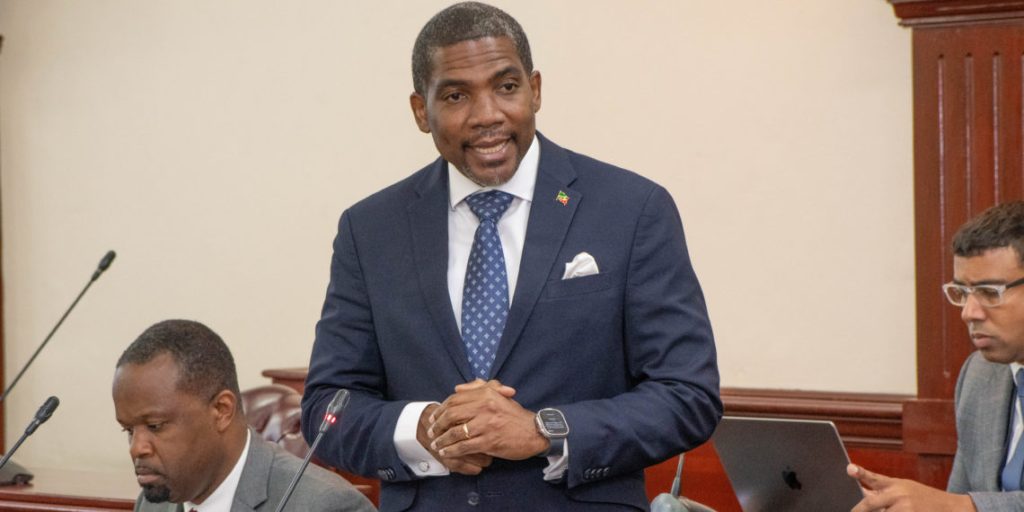Government Strengthens Anti-Gang Legislation as Prime Minister Drew Encourages Youth Towards Positive Choices
Prime Minister Dr. Terrance Drew’s Address on Youth Empowerment and Anti-Gang Legislation
Prime Minister Dr. Terrance Drew of St. Kitts and Nevis, in a recent address, emphasized the importance of providing alternative pathways for youth and strengthening anti-gang legislation as crucial strategies in combating gang violence and crime. He stressed the need for a comprehensive approach that addresses the root causes of gang involvement, while simultaneously implementing measures to deter and punish criminal activities. The Prime Minister’s message underscored a commitment to fostering a safe and productive environment for all citizens, particularly the younger generation, and ensuring the long-term stability and prosperity of the nation. He highlighted the government’s multifaceted strategy which includes strengthening social programs, enhancing educational opportunities, and providing skills training to empower young people and steer them away from the allure of gangs.
Dr. Drew’s call to action resonated deeply with the challenges many young people face, including poverty, lack of opportunity, and social exclusion. He acknowledged that these factors often contribute to the vulnerability of youth to gang recruitment, emphasizing the need for proactive interventions that address these underlying issues. The Prime Minister stressed the importance of creating an environment where young people feel valued, supported, and empowered to pursue positive life choices. He highlighted the government’s commitment to investing in youth development programs that provide mentorship, life skills training, and educational support, enabling them to realize their full potential and contribute meaningfully to society. The Prime Minister also emphasized the critical role of families, communities, and faith-based organizations in supporting and guiding young people, fostering a sense of belonging and purpose that can shield them from negative influences.
The passage of stronger anti-gang legislation marked a significant step in the government’s efforts to combat crime and maintain law and order. The Prime Minister stressed that this legislation is not merely about punishment but about sending a clear message that gang-related activities will not be tolerated. The legislation includes stricter penalties for gang membership, participation in gang-related activities, and the recruitment of minors into gangs. It provides law enforcement agencies with enhanced tools to investigate and prosecute gang-related crimes, while also incorporating provisions to protect witnesses and victims. The legislation also addresses the issue of gang-related finances, aimed at disrupting the economic activities that fuel gang operations.
Dr. Drew emphasized that the anti-gang legislation is part of a broader strategy to ensure public safety and security, working in tandem with initiatives focused on crime prevention and social intervention. He reiterated the government’s commitment to providing law enforcement agencies with the resources and training necessary to effectively combat crime, emphasizing the importance of community policing and building trust between law enforcement and the communities they serve. The Prime Minister also underscored the need for collaboration with regional and international partners to address the transnational dimensions of crime, including the trafficking of drugs and weapons.
The Prime Minister acknowledged that legislation alone cannot solve the complex issue of gang violence, highlighting the interconnectedness of crime, social issues, and economic disparities. He called for a holistic approach that engages all sectors of society, including government agencies, community organizations, the private sector, and individuals, in a collective effort to address the root causes of crime and build a more resilient and inclusive society. Dr. Drew underscored the importance of education, job creation, and economic empowerment as key pillars of this comprehensive strategy, emphasizing the need to invest in human capital and create opportunities for all citizens to thrive.
Dr. Drew’s address resonated with the hopes and aspirations of a nation striving for a brighter future, one where young people are empowered to reach their full potential and contribute to the well-being of their communities. The combination of proactive youth engagement programs, robust anti-gang legislation, and a comprehensive crime prevention strategy reflects the government’s commitment to creating a safer, more prosperous, and equitable society for all. This multi-pronged approach acknowledges the complexity of the challenges facing St. Kitts and Nevis and underscores the importance of working together to build a stronger, more resilient nation. The Prime Minister’s message serves as a call to action for all citizens to play their part in shaping a future where peace, prosperity, and opportunity prevail.
Share this content:










Post Comment